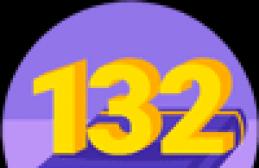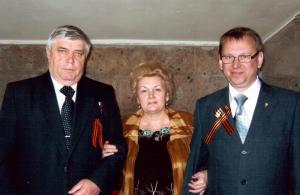Продолжаем изучать будущее время в английском языке. Упражнения отрабатывают все способы выражения будущего времени, поэтому предназначены для учащихся на уровне intermediate (уровень 2).
Будущее время в английском языке. Упражнения (intermediate, уровень 2)
К каждому упражнению предлагается список ситуаций для лучшего понимания, какой способ выражения будущего времени нужно использовать. Эти тонкости необходимо знать на уровне intermediate изучения английского языка. Научившись различать эти ситуации, вы будете легко справляться с тестами по данной теме.
Упражнение 1. Will vs be going to.
- will
- be going to
1. I’m ill. I_____________(call) the doctor.
2. — Tim has broken his leg and stays at home. — Sorry to hear that. I _________(visit) him tomorrow.
3. It’s Julia’s birthday today. She’s bought much food. She________ (cook) a lot.
4. — My bags are terribly heavy today. — Really? I ______(give) you a lift.
5. — Do you know Kate’s phone number? — I’ve bad memory for phone numbers, but I ______ (look) for it in my notebook.
6. My uncle has bought bricks. He ___________ (build) a house in the country.
7. — Has he decided how to spend the money? — Yes, he ____________ (buy) a car.
8. — Haven’t you taken my key? I can’t find it. — Just a minute. I ____________ (look) for it.
9. — Jack didn’t pass his exam yesterday. — Oh, what ______he ________ (do)?
10. — There is somebody at the door. — I___________ open.
Упражнение 2. Will vs Shall
A. Will vs Shall.
1. I ‘m tired. I … (go) to bed.
2. … I … (answer) the question?
3. I hope this test … (not to take) long.
4. You … (arrive) in Paris tomorrow evening.
5. Do you think that Diana … (come) to the party tomorrow?
6. I strongly believe that there … (not to be) any wars in the world.
7. Dad … (present) Mag a personal computer, … he?
9. The boy …(remember) this day all his life.
10. If I … (be) free tonight, I … (join) you.
B. Will vs Shall.
Употребите один из случаев выражения будущего времени в предложениях. Объясните свой выбор.
1. It’s late. I think I _________(take) a taxi.
2. We don’t know their address. What ______we _______(do) ?
3. Perhaps they ____________(buy) a new house this year.
4. I’m afraid they ___________(not to wait) for us.
5. He ___________(be) fourteen next year.
6. I’m not sure I ____________(find) Jim at the hotel.
7. Everybody thinks they ___________(not to get) married.
8. Do you think it ____________(rain) ?
9.____________ there ____________(be) medicine for every kind of disease in future?
10. When my brother ______________(finish) school, he _______ (go) to college.
Упражнение 3.
Употребите один из случаев выражения будущего времени в предложениях. Объясните свой выбор.
- will
- Present Simple
- Present Continuous — запланированное действие в ближайшем будущем: личная договоренность с людьми.
1. We (have) a party next Saturday. Would you like to come?
2. I (not/go) away for my holidays next month because I haven’t got enough money.
3. The concert (start) at 7.30 in the evening.
4. George, is it true that you (get married) next week?
5. The art exhibition (open) on 3 May and (finish) on 15 July.
6. What time … the next train (leave)?
7. Ann, we … (go) to town, … you (come) with us?
8. I (have) lunch with some businessmen next Wednesday.
9. My Uncle John from America (visit) us soon.
10. The examinations (take place) next month as announced.
Упражнение 4.
Выберите лучший или единственно правильный вариант выражения будущего времени.
- will
- will — спонтанное решение, принятое в данный момент;
- Present Simple — расписание (поездов, самолетов, автобусов, уроков, лекций, фильмов, и т.п.);
- will — в сложных предложениях после союзов времени & условия;
- Present Continuous — запланированное действие в ближайшем будущем: личная договоренность с людьми;
- be going to — запланированное действие в ближайшем будущем: намерение, план.
1. When (do / will) our classes start tomorrow?
2. The train from Liverpool (arrives / will arrive) at 7.30.
3. I don’t think the train (arrives / will arrive) on time.
4. I (will apologize / apologize) if you (will explain / explain) to me why I should.
5. I (will play / am playing) football tomorrow.
6. I (will promise / promise) I (will phone / phone) my granny.
7. We (will go / are going) to St. Petersburg soon.
8. What time (does / will) the bus arrive in Cardiff?
9. Alec (is going to write / is writing) a letter to his parents in the evening.
10. We are having a party on Saturday night. (Will you come / Are you coming)?
Упражнение 5. Will VS be going to
- will — действия в будущем, которые мы не можем изменить, констатация фактов;
- will — предсказание или предположение, основанное на собственном опыте или интуиции;
- will — спонтанное решение, принятое в данный момент;
- be going to — запланированное действие в ближайшем будущем: намерение, план.
1. It ____________probably________(not to rain) in Europe.
2. ______you_______(to come) to my house, please?
3. — Why have you got the flowers? — Because I____________(to visit) my teacher.
4. — I invite you to come to the party. — OK. I___________(to bring) my friend.
5. — I____________(to walk) the dog. — Wait a minute, and I___________(to come) with you.
6. I _________probably never_________(to learn) this poem.
7. I_____________(to stop) smoking.
8. — Have you decided what to buy Alex for his birthday? — Yes, I _________(to buy) him a computer game.
9. I love drawing. I____________(to be) a fashion designer.
10. — How about going for a picnic at weekend? — That’s a good idea. I___________(to make) a cake.
11. — What presents do you think people__________(to give) you next Christmas? — I think my father________(to give) me a book. Somebody___________(to give) me perfume. I don’t think anybody___________(to give) me a laptop.
12. — What _______fashion______(to be) like in the year of 2000? — I’m sure people_______(not to wear) long dresses and suits. Clothes________(to be) comfortable and simple.
13. Next century_________(to begin) on the 1st of January.
14. How long____________(to take) you to do the work?
15. John,________ (to do) me a favour?
16. When______you___________(to visit) your grandma? — Probably next year.
Желание каждого учащегося – довести свой навык владения языком до уровня, равного врожденной речи. Совершенство достигается только долгой практикой, и сегодня мы будем шлифовать шероховатости в своем владении future perfect . Аспект употребляется не очень часто и имеет многоэлементную конструкцию, поэтому в таких сказуемых многие начинают путать формы. Предотвратим появление грубых ошибок в нашей речи, выполнив на future perfect упражнения различной сложности. Начнем с элементарных заданий и постепенно продвинемся до требований уровня intermediate. Успехов в работе!
Кратко о грамматических моментах
Перфектное будущее употребляется для обозначения завершенности действия на момент начала другого события или наступления указанного отрезка времени в будущем. То есть это поступки, выполненные до того, как начались другие действия, или наступил временной момент.
Составное сказуемое утвердительного предложения представляет собой комбинацию will + have + прич. II. Иными словами, необходимо выразить будущность при помощи вспомогательного will и добавить перфектный инфинитив. В вопросительных выражениях сказуемое разбивается и will переезжает в начало фразы. В отрицаниях снова главную роль играет will, присоединяя not = won’t.
На этом закончим экскурс в теорию и попрактикуем future perfect, выполняя упражнения. Старайтесь вникать в контекст фразы и обращать внимание на указатели времени. Удачных и верных решений!
Future perfect упражнения – тренировка навыков базового и среднего уровня
Все задания распределены в градации от легких к сложным, поэтому при возникновении трудностей, вы всегда можете прервать работу и вернуться к ней позже. Let’s do some future perfect exercises!
Упражнение 1. Future perfect
Образуйте конструкцию Future Perfect используя глаголы, представленные в скобках:
My mother (cook) the cake before the guests come
I (do) all my homework by 7 o’clock tomorrow.
We (return) home already when you call us.
My sisters (clean) the flat before the parents come.
He (read) the War and Peace by next month.
She (finish) the work before her child wake up.
Jack Afford (write) a new novel by the end of the year.
They (repair) my smartphone by next Friday.
They (pass) all exams by July.
The teacher (not check) tests of pupils by the end of the lesson.
Упражнение 2. Future perfect
Выберете правильную конструкцияю глагола из представленных вариантов (предложения имеют не только форму Future perfect):
will learn learned have learnt will have learnt
The topic before she goes to the club.
check will check checked will have checked
Our works tomorrow.
will translate will have translated translated have translated
The text by next lesson.
Susan and Arnold
will go have go will have gone goes
To the country next week.
will paint had paint will have painted paints
Your portrait before you arrive from Netherlands.
have repair will repair will have repaired had repaired
Our car already when we return from Sydney.
will have moved have moved will move move
To Berlin next year.
will run run will have run ran
In the park on Saturdays.
had eat ate have eaten will have eaten
His food by the time I return from the dacha.
have corrected will correct corrected will have corrected
The documents before the boss goes to the business meeting.
Упражнение 3. Future perfect
Укажите верный перевод из представленных:
К следующему месяцу я закончу смотреть Клан Сопрано.
By next month I will have finished watching The Sopranos. By next month I finish watched The Sopranos By next month I will finish watch The Sopranos.
Моя сестра еще не приедет в Швецию к завтрашнему утру.
My sister shan’t have arrived in Sweden by tomorrow morning. My sister won’t had arrive in Sweden by tomorrow morning. My sister won’t have arrived in Sweden by tomorrow morning.
Они докрасят забор до того, как мы вернемся из города?
Have they painted the fence before we return from town? Will they have painted the fence before we return from town? Will they have paint the fence before we return from town?
Я уже допишу эту статью, когда ты поедешь в магазин.
I will not have written this article already when you go to the shop. I will write this article already when you go to the shop. I will have written this article already when you go to the shop.
Мы запустим этот проект к следующей весне, не так ли?
We had started this project by next spring, will we? We will have started this project by next spring, will we? We will have started this project by next spring, won’t we?
Когда мне будет 19 лет, я перееду жить в Польшу.
When I will be 19, I will have moved to Poland. When I am 19, I will have moved to Poland. When I am 19, I will move to Poland.
К следующему году она накопит деньги на этот автомобиль.
By next year she will save money for this car. By next year she will have saved money for this car. By next year she would save money for this car.
В английском языке существует несколько способов выражения будущего времени (ways of expressing future actions ). Отработке данных способов посвящен данный урок Затонской А.С.
Способы выражения будущего времени в английском языке.
Для выражения будущего времени в английском языке необходимо использовать один из следующих способов:
Использование одного из времен Future (will + нужная форма глагола)
Использование the Present Simple Tense.
Present Simple используется для выражения будущего в следующих речевых ситуациях:
The train leaves at 5pm in the evening.
The meeting begins at 8 sharp tomorrow.
Hockey is at 6pm.
Использование the Present Continuous Tense.
 Present Continuous используется для выражения будущего времени в следующих речевых ситуациях:
Present Continuous используется для выражения будущего времени в следующих речевых ситуациях:
- для выражения запланированного на ближайшее будущее действия (особенно с глаголами движения),
I"m flying to Kongo next Monday. — Я лечу в Конго в следующий понедельник.
Использование фраз to be going to, to be about to.
Думаю, в рамках данной темы Вам полезно будет также обратить внимание на следующие статьи:
Ways of expressing the future action. Схемы и таблицы
Предлагаю несколько схем и таблиц, которые помогут Вам лучше разобраться в особенностях использования различных способов выражения будущего времени.
Таблица 1.

Таблица 2.

Способы выражения будущего времени в английском. Упражнения.
Как и все упражнения из цикла уроков Затонской А.С., следующие упражнения основаны на определенной лексической теме. В данном случае, помимо отработки грамматики, мы отработаем еще и лексику по теме Travelling .
Grammar: the ways of expressing the future action (the Future Simple Tense, the Future Continuous Tense, the Present Simple Tense, the Present Continuous Tense, phrases: to be going to, to be about to).
Lexical topic: Traveling.
Exercise 1. Open the brackets and put the verbs in the proper Tense. Remember that you should use the Future Simple Tense if you speak about the action or succession of actions which will take place in future; if you speak about the action which will be in progress in some moment in future you should use the Future Continuous Tense . You can also use the Present Tenses.
- … you (to go) to the booking office to buy the tickets? – No, I (to phone) them.
- I am sure he (to be busy) when you (to come). – What makes you think so? – He (to pack) his luggage for the trip. – Really? … he (to go) anywhere?
- I am going to visit you in July! I really want to see Jimmy – I haven’t seen him for ages! – Don’t even hope. When you come Jimmy (to travel) in a month-long cruise over Europe.
Exercise 2. Complete the sentences.
- When he arrives at St. Petersburg …
- He will buy the tickets for the express train when …
- When his parents come at his place …
- When you come at his place next Friday your visit will be quite out of place because he…
- They will be going sightseeing when …
- When he waits at the railway station tomorrow …
- He will be hiking when …
- When the summer comes …
Exercise 3. Translate into English.
- Когда придет лето, он будет путешествовать на корабле по Средиземному морю.
- Ты пойдешь меня провожать? – Конечно! С какого вокзала ты уезжаешь? – С главного. Поезд 12, вагон 7. Хорошо! Я не опоздаю!
- Ты знаешь, что к тебе собирается Олег? – Да, это не слишком удачно: когда он придет, я как раз буду собирать чемоданы.
- Куда ты поедешь на каникулы?
Exercise 4. Describe step by step how you hurriedly pack your things and something disturbs you from this. Don’t forget that you can use such phrases as “to be about to”, “to be going to” when you speak about the immediate future.
The pattern: “I am going to pack my things. I am just about to write a list if things when I realize I have no pen. … “
Exercise 5. You and your friends are going travelling at approximately the same time but to different places. Discuss what you are going to take with you, how you are going to spend the time there, give each other pieces of advice.
Exercise 6. Translate into English.
- Ты уже знаешь, где ты проведешь лето? – Да, я поеду на море, как и в прошлом году. – Ты собираешься набрать столько же чемоданов? – Нет, в этот раз постараюсь быть осторожнее с багажом. А куда едешь ты? – Мой маршрут прост: сначала мы с друзьями пойдем в поход, а потом я поеду к родственникам в деревню – буду плавать в речке и загорать на солнышке в деревенской глуши.
- Муж, жена и четверо их детей провели уикенд в деревне. Вечером, возвращаясь, они решили взять такси. «За сколько вы довезете нас до Ленокс-Стрит?» – спросил муж. «Вас и жену за два доллара; детей возьму бесплатно» – ответил водитель. «Отлично, ребята» — сказал отец, — «Вы поезжайте домой, а мы с мамой поедем на метро».
- Пассажир самолета спрашивает стюардессу: «А вы будете раздавать нам парашюты?» – «Конечно, нет» — «Но ведь на кораблях дают спасательные круги!» – «Но ведь мы же не в море!» — «Да, но количество лиц, умеющих плавать, гораздо больше, чем количество лиц, умеющих летать!»
Exercise 7. Describe your plans for the summer.
Exercise 8. What will travelling be like in future, from your point of view? Describe it according to the following plan:
- reasons for travelling;
- season and longevity of travelling;
- means of transport;
- places to stay in;
- sightseeing; entertainment.
Надеюсь, Вам понравился этот урок и вы разобрались в способах выражения будущего времени в английском языке.
1. Подставьте в предложения will/won’t/shall . Переведите.
Теоретический материал к уроку:
1. … I help you with the washing up?
2. … you give me a lift to the office?
3. The ship … leave the island next week.
4. He … go by car as usual.
5. Where … I hide if he comes?
6. You are so rude. I … talk to you ever again.
7. … you arrive on time?
8. I’m too busy tomorrow. Sorry but we … see each other.
9. Good-bye, John. I … phone you on Monday.
10. Steve has got a backache. He … go horse-riding today.
2. Предложите свою помощь, используя глаголы в будущем времени.
Например: Someone is knocking at the door. (Кто-то стучит в дверь.) – I’ll open the door . (Я открою дверь. )
1. The telephone is ringing. (Телефон звонит.)
2. The hamster is hungry. (Хомяк голоден.)
3. It’s dark in the room. (В комнате темно.)
4. We don’t have any sugar left. (У нас не осталось сахара.)
5. I’m thirsty. (Я хочу пить.)
3. Напишите предсказания гадалки в будущем времени. Если стоит знак «+» , значит, это желание сбудется. Если стоит «-» , значит, не сбудется.
Например: You will get married in July. (Ты выйдешь замуж в июле.)
1. get married (+)
2. get a higher salary (-)
3. travel abroad (+)
4. have your own business (+)
5. learn foreign languages (-)
6. have 3 children (-)
7. enter the university (+)
8. buy a sports car (-)
9. live near the ocean (-)
10. become a film star (+)
4. Прочитайте рассказ о мистере Коллинсе. Найдите глаголы в настоящем времени и измените их на будущее, начиная с третьего предложения. Напишите о том, чем он будет заниматься завтра.
Mr. Collins is a shopkeeper. He lives in an English village. He sells food and newspapers in his shop. He doesn’t sell cigarettes there. He also sells delicious sweets and ice-cream, so a lot of schoolchildren spend much money there. His wife and his son help him. Mrs. Collins cleans the shop and works as an accountant too. Their son works at the cash-desk. In the morning Mr. Collins goes by car to the bank. In the evening he is very tired. They don’t cook dinner at home because they eat out in a good restaurant near the house.
Mr. Collins is a shopkeeper. (Мистер Коллинс – владелец магазина.) He lives in an English village. (Он живет в английской деревушке.) Tomorrow he … (Завтра он …)
Ответы:
1.
1. Shall (Тебе помочь помыть посуду?)
2. Will (Ты не подбросишь меня до офиса?)
3. will (Корабль отчалит от острова на следующей неделе.)
4. will (Он поедет на машине, как обычно.)
5. shall (Где мне спрятаться, если он придет?)
6. won’t (Ты такой грубиян. Я не буду больше с тобой разговаривать.)
7. Will (Ты приедешь вовремя?)
8. won’t (Я слишком занят завтра. Прости, но мы не увидимся.)
9. will (Пока, Джон. Я позвоню тебе в понедельник.)
10. won’t (У Стива болит спина. Он не поедет кататься верхом на лошади сегодня.)
2.
1. I’ll answer it. (Я отвечу.)
2. I’ll feed it. (Я покормлю его.)
3. I’ll switch/turn on the light. (Я включу свет.)
4. I’ll go and buy it. (Пойду и куплю его.)
5. I’ll bring you some water. (Принесу тебе немного воды.)
3.
1. —
2. You will not (won’t) get a higher salary. (Ты не получишь более высокую зарплату.)
3. You’ll travel abroad. (Ты будешь путешествовать заграницей.)
4. You will have your own business. (У тебя будет свой собственный бизнес.)
5. You won’t learn foreign languages. (Ты не выучишь иностранные языки.)
6. You won’t have 3 children. (У тебя не будет 3 детей.)
7. You will enter the university. (Ты поступишь в университет.)
8. You won’t buy a sports car. (Ты не купишь спортивный автомобиль.)
9. You won’t live near the ocean. (Ты не будешь жить рядом с океаном.)
10. You will become a soap opera star. (Ты станешь звездой мыльной оперы.)
Tomorrow he will sell food and newspapers in his shop. (Завтра он будет продавать продукты и газеты в своем магазине.) He won’t sell cigarettes there. (Он не будет продавать сигареты там.) He will also sell delicious sweets and ice-cream, so a lot of schoolchildren will spend much money there. (Он также будет продавать вкусные конфеты и мороженое, поэтому многие дети потратят там много денег.) His wife and his son will help him. (Его жена и сын будут ему помогать.) Mrs. Collins will clean the shop and work as an accountant too. (Миссис Коллинс будет убираться в магазине, а также работать бухгалтером.) Their son will work at the cash-desk. (Их сын будет стоять на кассе.) In the morning Mr. Collins will go by car to the bank. (Утром мистер Коллинс поедет на машине в банк.) In the evening he will be very tired. (Вечером он очень устанет.) They won’t cook dinner at home because they will eat out in a good restaurant near the house. (Они не будут готовить ужин дома, потому что пойдут ужинать в хороший ресторан рядом с домом.)
Чтобы задать вопрос в простом будущем времени нужно поставить слово Will в начало вопроса.
Will you study English?
Ты будешь учить английский?
Will she work?
Она будет работать?
Варианты ответов на данный вопрос:
No, I won’t. She won’t.
Нет не буду. Нет, она не будет.
Yes, I will. Yes, she will.
Да буду. Да, она будет работать.
Вопросительные предложения примеры в Future simple
1. Will you cook something for dinner?
Приготовишь что-нибудь на ужин?
2. Will you play chess tomorrow?
Будешь завтра играть в шахматы?
3. Will Tom go to the park now?
Том пойдет сейчас гулять в парк?
4. Will you come to my house next Sunday?
Ты придешь ко мне в следующее воскресенье?
5. Will you love me forever?
Ты всегда будешь меня любить?
6. Will your father do this?
Твой отец это сделает?
7. Will you sing tonight?
Ты будешь петь сегодня вечером?
8. Will they stay?
Они останутся?
9. Will your sister like it?
А твоей сестре это понравится?
10. When will you get your exam results?
Когда ты узнаешь результаты экзамена?
Вопросительные слова: Кто? Что? Куда? Где? Когда? Почему? Сколько? ставим в начале предложения.
What? When? Where? Who? How? How many? How much? Why?
1. How much will it cost?
Сколько это будет стоить?
2. What will you cook today for dinner?
Что будешь готовить на ужин?
3. Where will he go?
Куда он пойдет?
4. Where will your wedding take place?
Где будет ваша свадьба? /в каком месте/
5. How many times will you honk your horn?
Сколько ты теперь будешь сигналить?
6. How much time will you stay in Italy?
Как долго ты пробудешь в Италии?
7. How often will you visit your parents?
Как часто ты будешь навещать своих родителей?
8. Who will you meet in New York?
Кто тебя встретит в Нью-Йорке?
9. When will we go to the movies?
Когда мы пойдем в кино?
10. How will she know that?
Откуда она это узнает?
УПРАЖНЕНИЯ НА Future simple - задаем вопросы
Упражнение #1
Задайте на английском вопросы в будущем времени.
1. Что ты будешь делать на выходные?
2. Ты придешь сегодня?
3. Ты позвонишь мне?
4. Ты пойдешь завтра в спортзал?
5. Ты поможешь мне с английским?
6. Что мы будем делать сегодня вечером?
7. Где ты будешь жить?
8. Что ты оденешь на свадьбу?
9. Куда они поедут?
10. Что мы будем кушать?
Правильные ответы к упражнению #1
1. What will you do this weekend?
2. Will you come today?
3. Will you call me?
4. Will you go to the gym tomorrow?
5. Will you help me with my English?
6. What will we do tonight?
7. Where will you live?
8. What kind of dress will you wear to a wedding?
9. Where will they go?
10. What will we eat?
Упражнение #2
Вставьте пропущенные слова и переведите эти предложения на русский язык.
1. What ___ you eat?
2. Why ___ they study English?
3. What ___ she do tonight?
4. Whom ___ you meet in heaven?
5. ___ they travel by car?
6. ___ you help me carry my bags, please?
7. What ___ they do?
8. What time ___ we get to Moscow?
9. ___ you pick up my dry-cleaning for me, please?
10. When ___ you get married?
Правильные ответы к упражнению #2
1. What will you eat?
2. Why will they study English?
3. What will she do tonight?
4. Whom will you meet in heaven?
5. Will they travel by car?
6. Will you help me carry my bags, please?
7. What will they do?
8. What time will we get to Moscow?
9. Will you pick up my dry-cleaning for me, please?
10. When will you get married?
Упражнение #3
Переведите на русский язык следующие предложения:
1. Will he watch TV tonight?
2. What time will you wake up tomorrow?
3. Who will you marry?
4. Will you meet me at the mall?
5. Will you watch this movie?
6. What will they do?
7. What time will we play tennis tomorrow?
8. Will you come today?
9. Will you call back me?
10. Will you come with me?
Правильные ответы к упражнению #3
1. Он будет сегодня смотреть телевизор?
2. Во сколько завтра проснешься?
3. За кого ты выходишь замуж?
4. Встретишь меня в торговом центре?
5. Будешь смотреть это кино?
6. Что они будут делать?
7. Во сколько мы играем в теннис завтра?
8. Придешь ко мне сегодня?
9. Ты перезвонишь мне?
10. Ты пойдешь со мной?
Упражнение #4
Сделайте вопросительные предложения из повествовательных:
1. I’ll call you next week.
2. Jake will pay for it.
3. She will be here very soon.
4. You’ll marry her.
5. David will change his job.
6. He won’t be in Spain on Tuesday.
7. She will open it.
8. It will snow in winter.
9. V. Putin will be the next President.
10. We’ll travel abroad.
Правильные ответы к упражнению #4
1. Will you call me next week?
2. Will Jake pay for it?
3. Will she be very here soon?
4. Will you marry her?
5. Will David change his job?
6. Will he not be in Spain on Tuesday?
7. Will he open it?
8. Will it snow in winter?
9. Will V. Putin be the next President?
10. Will you travel abroad?
Упражнение #5
Составьте вопросительные предложения в Future Simple.
1. the answer / tomorrow / know / She / will.
2. I / you / call / will.
3. pictures / You /send / Kate / the.
4. I /sandwiches / make / will / some.
5. will / concert / soon / end / the.
6. at / will / 7 / they /come/ o’clock.
7. will / house / you a / buy .
8. at / will / David / tonight / stay / home.
9. a / we / next / will / museum / weekend / visit.
10. will / they / at / study / university.
Правильные ответы к упражнению #5
1. Will she know the answer tomorrow?
2. Will I call you?
3. Will you send Kate the pictures?
4. Will I make some sandwiches?
5. Will the concert end soon?
6. Will they come at 7 o’clock?
7. Will you buy a house?
8. Will David stay at home tonight?
9. Will we visit a museum next weekend?
10. Will they study at university?
Упражнение #6
Скажите это по-русски
1. Will I have my breakfast at 08:00 a.m?
2. Will Jake win this game?
3. Will you find your bag?
4. Will the winter be especially cold this year?
5. Will you speak with him about me?
6. Will you meet him tonight?
7. Will he be in Switzerland on Saturday?
8. What will she make for dinner?
9. Will they finish today?
10. Will Kate have her birthday party on Saturday?
Правильные ответы к упражнению #6
1. Я буду завтракать в 8 утра?
2. Джек выиграет эту игру?
3. Ты найдешь свою сумку?
4. Будет ли зима особенно холодной в этом году?
5. Ты поговоришь с ним обо мне?
6. Ты встретишь его сегодня вечером?
7. Он будет в воскресенье в Швейцарии?
8. Что она приготовит на ужин?
9. Они закончат завтра?
10. У Кати будет вечеринка в воскресенье?
Упражнение #7
Скажите это по-английски
1. Он будет отдыхать?
2. Где он будет в воскресенье?
3. Они подпишут контракт вечером?
4. Приготовишь обед?
5. Когда он возвращается из поездки?
6. Алекс купит билет послезавтра?
7. Куда ты пойдешь?
8. Джордан будет в Ню-Йорке в понедельник?
9. Тебе нужна машина в следующие выходные?
10. Она переведет эту статью?
Правильные ответы к упражнению #7
1. Will he relax?
2. Where will he be on Sunday?
3. Will they sign the contract tonight?
4. Will you make dinner?
5. When will he be back from his trip?
6. Will Alex buy his ticket the day after tomorrow?
7. Where will you go?
8. Will Jordan will be in New York on Monday?
9. Will you need a car next weekend?
10. Will she translate this article?
Упражнение #8
Раскройте скобки, употребляя глаголы Future Simple и поставьте утвердительные предложения в вопросительные.
А так же, переведите эти предложения на русский язык.
1. It (be) sunny tomorrow.
2. Tom (be) very pleased.
3. You (meet) a beautiful girl.
4. I (check) your English.
5. You (take) the exam.
6. Wait, I (do) this.
7. We (return) as soon as possible.
8. Don’t worry. She (come).
9. H. Clinton (win) the next election.
10. Next year (be) very exciting.
Правильные ответы к упражнению #8
1. Will it be sunny tomorrow?
2. Will Tom be very pleased?
3. Will you meet a beautiful girl?
4. Will I check your English?
5. Will you take the exam?
6. Wait, will you do this?
7.Will you return as soon as possible?
8. Will she come?
9. Will H. Clinton win the next election?
10. Will next year be very exciting?
Упражнение #9
Ответьте по-английски на вопросы используя Future Simple.
1. Will I come and help her? Yes, you ___.
2. Will she do your homework for you? Yes, she ___.
3. Will you take her with you ? No, I ___.
4. Will Tom write a new post tonight? No, he ___.
5. Will you next year be eighteen years old? Yes, I ___ be.
6. Will they take a taxi? No, they ___.
7. Will I see you again? Yes, you ___.
8. Will we have two banana smoothie? No, you ___.
9. Will he ask a driver which road to take? No, she ___.
10. Will it be very hot this summer? Yes, it ___.
Правильные ответы к упражнению #9
1. Will I come and help her? Yes, you will.
2. Will she do your homework for you? Yes, she will.
3. Will you take her with you ? No, I won’t.
4. Will Tom write a new post tonight? No, he won’t.
5. Will you next year be eighteen years old? Yes, I will be.
6. Will they take a taxi? No, they won’t.
7. Will I see you again? Yes, you will.
8. Will we have two banana smoothie? No, you won’t.
9. Will he ask a driver which road to take? No, she won’t.
10. Will it be very hot this summer? Yes, it will.









